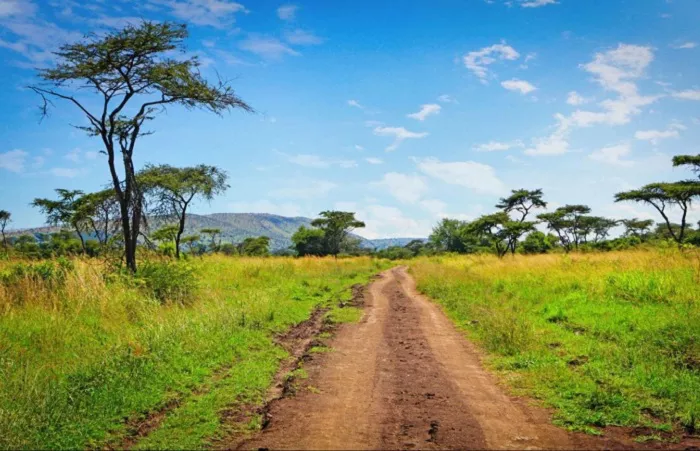Seventy southern white rhinos have been successfully relocated from South Africa to Rwanda’s Akagera National Park in a landmark international translocation aimed at securing the future of the species. The effort marks the first major relocation by the newly launched Rhino Rewild Initiative, following the acquisition of Platinum Rhino, a large-scale captive breeding facility, by African Parks in 2023.
Platinum Rhino, located approximately 160 kilometers southeast of Johannesburg, was home to 2,000 white rhinos—roughly 15% of the global population—alongside other species such as giraffes and zebras. After the facility failed to attract bidders at auction due to financial difficulties, African Parks acquired the 7,800-hectare property and rebranded it as Rhino Rewild.
The initiative aims to disperse white rhinos across secure, well-managed protected areas in Africa to create new population strongholds and reinforce existing ones. The initial phase saw 40 rhinos moved to South Africa’s Munywana Conservancy. The latest and more ambitious phase involved transporting 70 rhinos to Akagera National Park in Rwanda.
“Akagera can potentially support significant numbers of white rhino,” said Donovan Jooste, rhino rewilding project manager for African Parks. “Rwanda’s political stability and strong governmental support make this population crucial for the species’ long-term survival.”
The rhino translocation, completed in two groups of 35 on June 4 and June 7, entailed a 3,400-kilometer journey. The animals were first transported by truck to Durban, flown to Kigali, and then driven to Akagera. Prior to the final relocation, the rhinos were housed at Munywana Conservancy to acclimatize to natural diseases and environmental conditions.
This complex undertaking was the result of coordinated planning between the Rwanda Development Board (RDB), African Parks, and Munywana Conservancy. Veterinary teams monitored the animals throughout the process to ensure their safety and well-being.
While the operation has been hailed as a conservation milestone, experts caution that translocations carry inherent risks. Dave Balfour, chair of the African Rhino Specialist Group at the International Union for Conservation of Nature (IUCN), emphasized that while moving rhinos to secure areas reduces poaching threats, other dangers must be carefully managed.
“Taking rhinos out of their historical range introduces risks, including habitat incompatibility, unfamiliar diseases, and failure to adapt,” Balfour noted.
Historical precedent underscores these challenges. In 2018, four of six black rhinos relocated from South Africa to Chad’s Zakouma National Park died after struggling to adapt to local vegetation.
Despite such risks, African Parks remains optimistic. “We’re confident these rhinos will successfully adapt to their new home in Akagera,” Jooste said. “We have mitigation procedures in place and will monitor each animal closely.”
Additional translocations from Rhino Rewild are anticipated later this year as part of the broader initiative to restore wild rhino populations across the continent.
“This is an enormous opportunity to safeguard the future of white rhinos,” Jooste added. “It’s a complex process, but one we believe is crucial to ensuring these animals thrive.”


